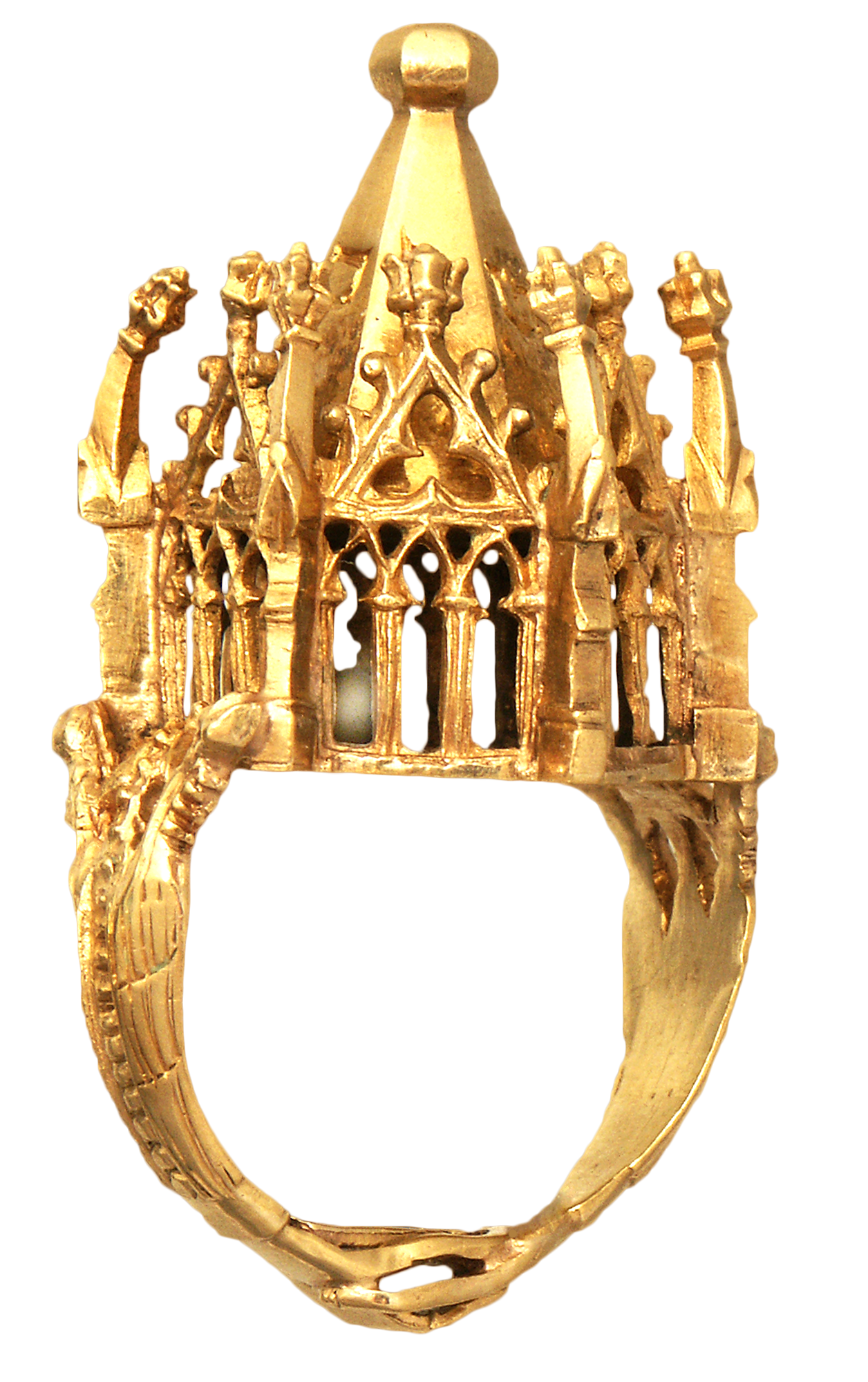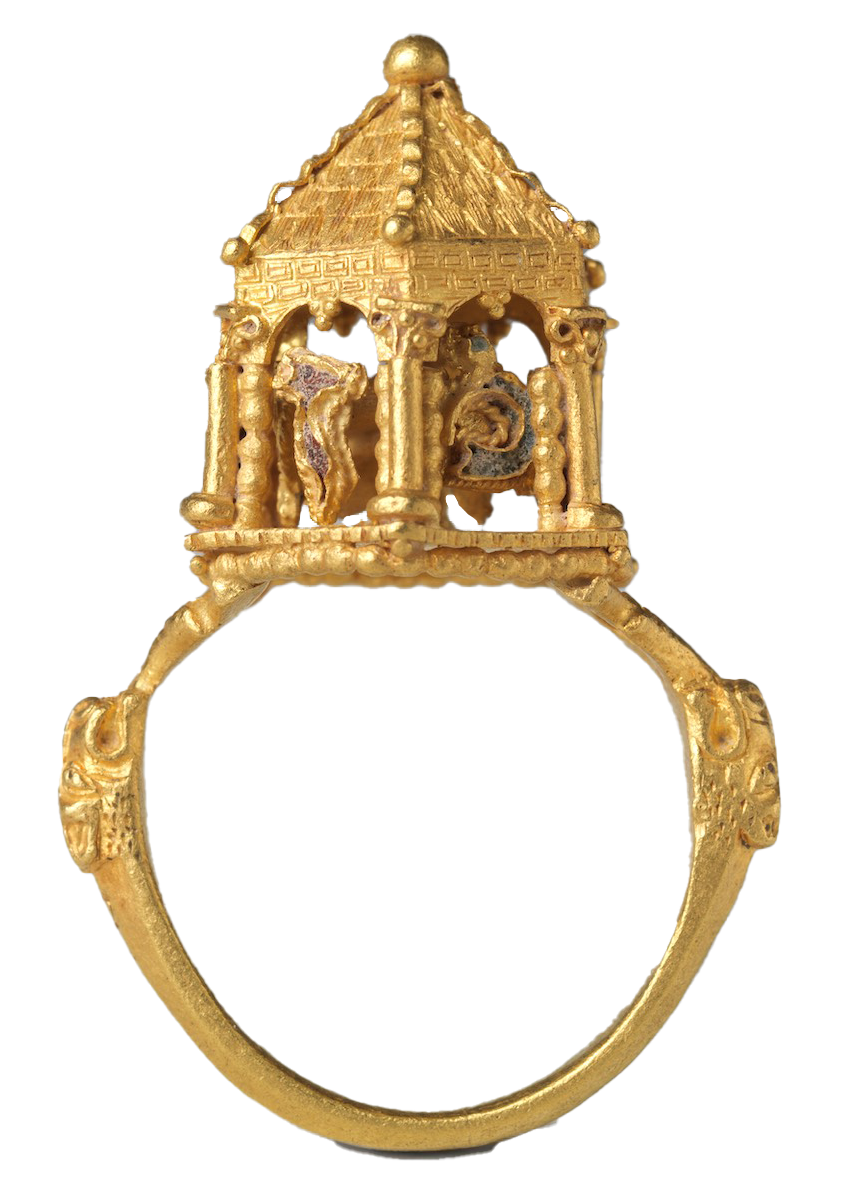
Znak zawarcia małżeństwa przekazany pannie młodej przez pana młodego podczas zaręczynowej części ceremonii ślubnej.


Żydowskie pierścienie ślubne zachowały się w średniowiecznych skarbach. Większość dużych pierścieni w kształcie domu jest obecnie uznawana za nowszy typ, prawdopodobnie wykonany dla kolekcjonerów w XIX wieku. Autentyczność tego typu pierścieni kwestionowano już w 1871 roku.
Adler, Cyrus, and Albert Wolf. “Rings.” Jewish Encyclopedia: The Unedited Full-Text of the 1906 Jewish Encyclopedia.
Gutmann, Joseph. “‘With This Ring I Thee Wed’: Unusual Jewish Wedding Rings.” For Everything a Season: Proceedings of the Symposium on Jewish Ritual Art, edited by Joseph Gutman, Cleveland: Cleveland State University, 2002, pp. 133-44.
Holocomb, Melanie. “Whoever Hid the Colmar Treasure Inside a Wall Managed to Protect it from Looters but was not so Lucky Themselves.” Shared History Project, Leo Baeck Institute, 12 Feb. 2021.
Holocomb, Melanie. “Who Once Wore this Exquisite Ring.” Shared History Project, Leo Baeck Institute, 12 Feb. 2021.
Mann, Vivian B. “The First English Collector of Jewish Wedding Rings and their Dealers.” Images: A Journal of Jewish Art and Visual Culture, vol. 11, no. 2, 2018, pp. 177-85.
Pappenheim, Shlomo. “The Wedding Ring.” The Jewish Wedding, New York: Yeshiva University Museum, 1977, pp. 45-51.
Seidmann, Gertrude. “Marriage Rings Jewish Style.” Connoisseur, 1981, pp. 48-51.
Seidmann, Gertrude. “Jewish Marriage Rings.” The International Silver & Jewellery Fair & Jewish Marriage Rings Seminar, 1989, pp. 29-34.
Sperber, Daniel. “Betrothal Rings.” The Jewish Life Cycle: Custom, Lore and Iconography – Jewish Customs from the Cradle to the Grave, Ramat Gan and Oxford: Bar-Ilan University Press and Oxford University Press, 2008, pp. 158-65.
Stürzebecher, Maria. Jewish Wedding Rings with Miniature Architecture from Medieval Europe, in: Medieval and early modern Finger Rings from Christian and Jewish Contexts, ed. Maria Stürzebecher, Arts, Special Issue 2022, p.1-15.
Stürzebecher, Maria. The Medieval Jewish Wedding Ring from the Erfurt Treasure: Ceremonial Object or Bride Price?, in: Erfurter Schriften zur Jüdischen Geschichte, Band 6: Ritual Objects in Ritual Contexts, ed. Claudia D. Bergmann and Maria Stürzebecher, Jena – Quedlinburg: Bussert & Stadeler 2020, p.72-79.
Wybierz język